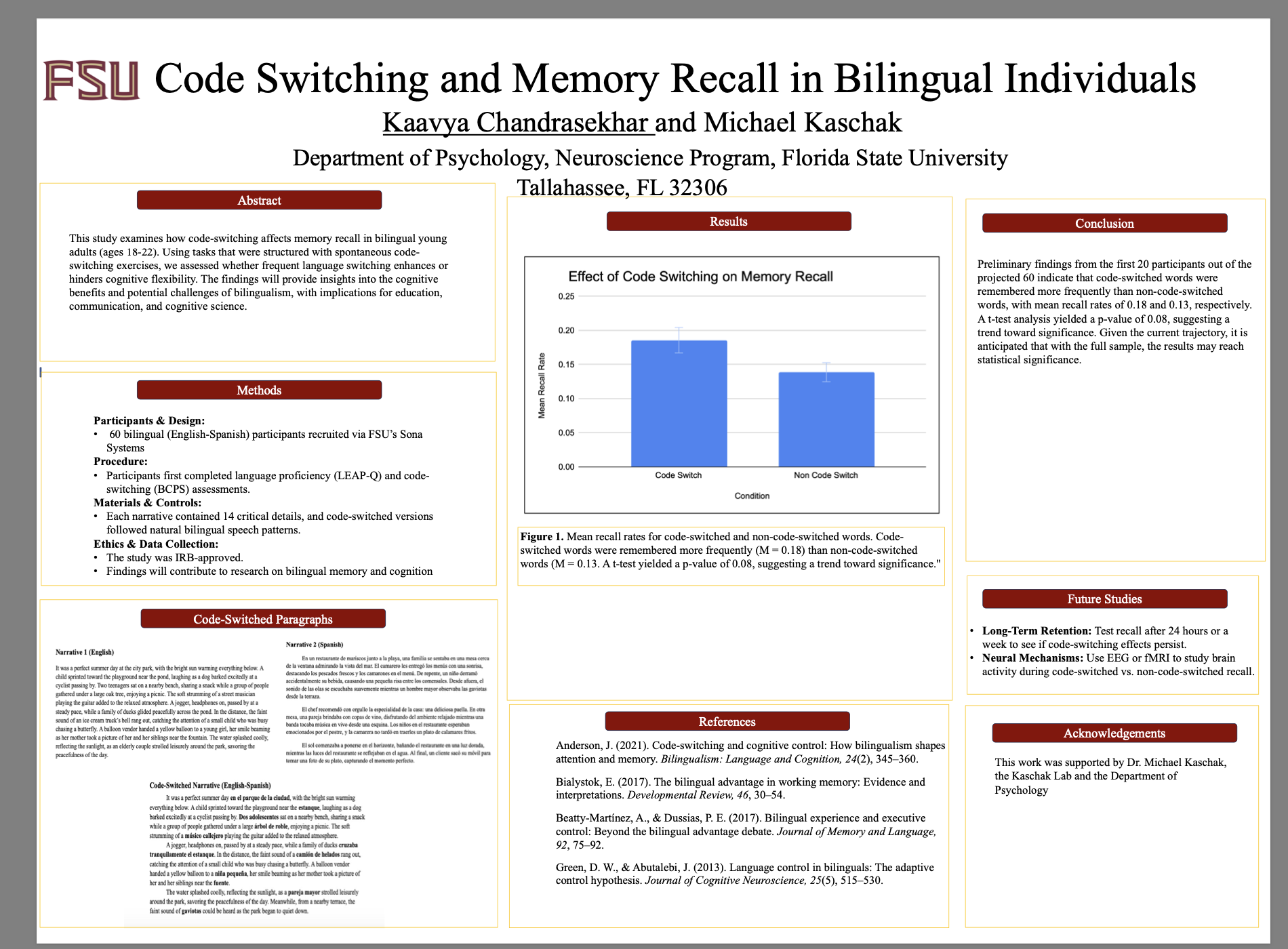Research Symposium
25th annual Undergraduate Research Symposium, April 1, 2025
Kaavya Chandrasekhar Poster Session 3: 1:45 pm - 2:45 pm/ Poster #156

BIO
My name is Kaavya Chandrasekhar, and I am a senior majoring in Behavioral Neuroscience with a minor in Chemistry. Originally from San Francisco, California, I’ve spent the past four years growing both personally and academically at FSU. The university has played a pivotal role in shaping who I am today by equipping me with the tools to embrace challenges with a growth mindset and pursue my goals with resilience.
Following graduation, I will be taking a gap year to conduct neuroscience research at Duke University and I am currently applying to medical school. My aspiration is to become an orthopedic surgeon in the United States Air Force. As a future physician, I am deeply committed to advancing healthcare accessibility for individuals with disabilities, ensuring that all patients receive the quality care they deserve, regardless of their physical or sensory limitations
Code Switching and Memory Recall
Authors: Kaavya Chandrasekhar, Michael KaschakStudent Major: Behavioral Neuroscience
Mentor: Michael Kaschak
Mentor's Department: Psychology Mentor's College: University of Wisconsin - Madison Co-Presenters:
Abstract
Code-switching, the practice of alternating between two or more languages within a conversation, has been widely examined in linguistic and cognitive research. In the context of bilingual adults, understanding whether and how code-switching influences cognitive functions, particularly memory recall and inhibitory control, remains an area of significant interest. This study investigates the relationship between code-switching and cognitive processing by analyzing the inhibitory control and recall accuracy of bilingual individuals aged 18-22. By employing experimental tasks such as structured and unstructured code-switching scenarios, this research aims to determine whether frequent engagement in code-switching enhances or hinders cognitive flexibility and memory recall.
Previous studies suggest that bilingual individuals develop stronger executive control and cognitive flexibility due to their constant need to manage two linguistic systems. However, the effects of code-switching on inhibitory control and recall are still debated. Some researchers propose that code-switching imposes an additional cognitive load, making it more difficult to retrieve information accurately, while others argue that it enhances cognitive efficiency by reinforcing language networks. This study builds upon existing research by incorporating standardized language proficiency assessments and behavioral tasks to measure executive functioning and recall performance in bilingual adults.
By assessing recall performance, inhibitory control, and the context of code-switching, this study contributes to the ongoing discourse on bilingual cognitive advantages and challenges. The results will help inform educators, linguists, and cognitive scientists about the potential benefits and limitations of code-switching in language development, education, and communication.
Keywords: Code-Switching

